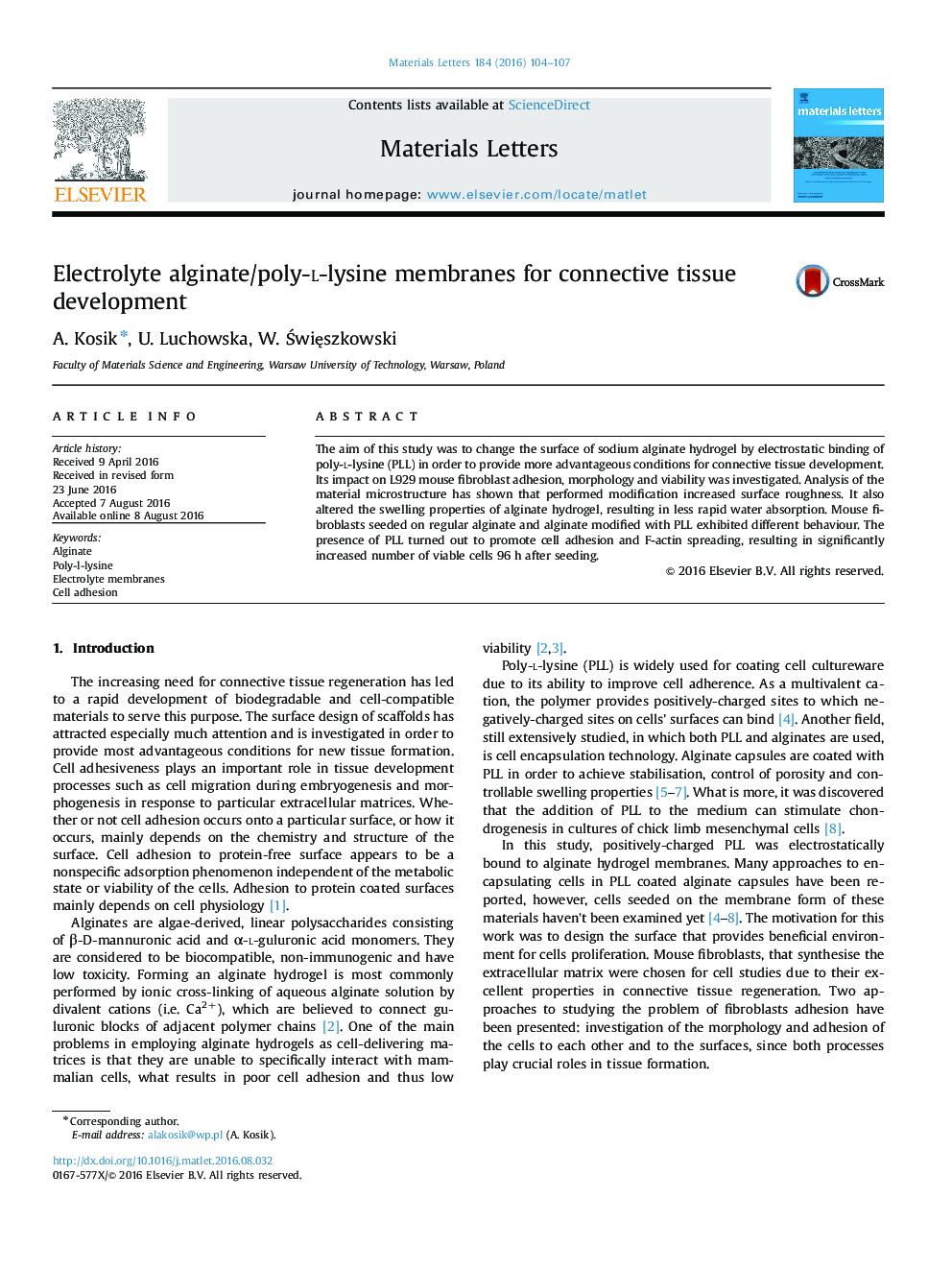| Article ID | Journal | Published Year | Pages | File Type |
|---|---|---|---|---|
| 8016099 | Materials Letters | 2016 | 4 Pages |
Abstract
The aim of this study was to change the surface of sodium alginate hydrogel by electrostatic binding of poly-l-lysine (PLL) in order to provide more advantageous conditions for connective tissue development. Its impact on L929 mouse fibroblast adhesion, morphology and viability was investigated. Analysis of the material microstructure has shown that performed modification increased surface roughness. It also altered the swelling properties of alginate hydrogel, resulting in less rapid water absorption. Mouse fibroblasts seeded on regular alginate and alginate modified with PLL exhibited different behaviour. The presence of PLL turned out to promote cell adhesion and F-actin spreading, resulting in significantly increased number of viable cells 96Â h after seeding.
Related Topics
Physical Sciences and Engineering
Materials Science
Nanotechnology
Authors
A. Kosik, U. Luchowska, W. ÅwiÄszkowski,
